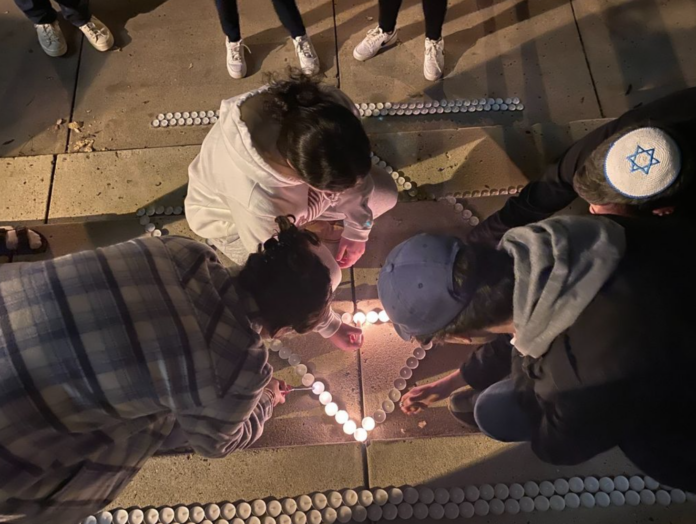
In many ways, the situation in the Middle East is a reflection of the complex lines of differences that have divided humanity for centuries. Religion, region and legion alike have forced us to pick sides in our response to what has been a devastating week for many of us on this campus. We have seen our friends fear for their families, grieve their losses and pray for peace– all while many of us attempt to understand a divisive issue we may not fully comprehend. Yet, an essential aspect of that endeavor is the ability to freely speak with our peers and faculty alike– an opportunity that has come under threat these past few weeks.
“If you don’t have to be scared for your friends or family in the region, you don’t deserve to have an opinion about it,” a student who’d like to remain anonymous, posted on their Instagram story. While one can empathize with the frustrations those students may experience, it is essential to note that in today’s hyper-connected and globalized world, the answer may not be as simple anymore. We must recognize that whether it’s a military general overthrowing an elected government in Myanmar, a virus outbreak in a wet shop in China or Putin invading a small Western European country, developments halfway across the world are likely to still impact you here in the states. While your peers may not have an “equal” stake in the conflict, it would serve us well to recognize the effects we all feel regardless.
Once we have recognized our collective stake in the issue, it becomes imperative for us to begin having active conversations surrounding these issues. For some, it could be an individual endeavor to learn more about the subject, while others may choose to be more actively engaged and ask questions during discussions in class and around campus. Whatever it may look like for you, we must avoid sweeping this issue under the rug for fear of being “wrong” or “politically incorrect.” Instead, walk up to your friends and ask them what they know or maybe try to follow the news on recent events. In any case, disengagement from the topic is detrimental and we must stay informed on global developments. Growing isolationist and apathetic tendencies have always preceded some of humanity’s worst actions and we must avoid repeating history.
In opening these spaces for discussion, we must recognize the importance of continuing to engage, especially when we may disagree with one another. “I am willing to lose friendships based on people’s views on the ethnic cleansing of Palestinians. You either support it or you don’t,” remarked Shajnin Howlader ‘27 when conducting an interview last week. While this particular conflict is known to cause intense, emotional, visceral reactions and cause rifts in relationships, it is also more critical than ever to remain open to differing perspectives. Not only does this allow for an open dialogue surrounding an important contemporary issue, but it also helps us look inward to find pitfalls and weaknesses in our own understanding of the issue. Without this, we are likely to find ourselves in misinformed echo chambers that propagate a single perspective on the matter.
At the end of the day, we are all entitled to our own opinions–but not to our own set of facts. Underscoring all of these points is the emphasis on remaining open to shifting our own perspective when faced with inconvenient truths and the ability to have these difficult conversations at appropriate times. This month’s events will likely not be the last time we may find ourselves at odds with one another. Yet, as long as we keep engaging with one another, and refusing to allow our differences to eclipse our similarities, there is cause to remain hopeful.






















Kabir, What a thoughtful and timely piece. I am so impressed with the clarity and sensitivity with which you approached the subject. You give everyone something to think about and this is such an excellent example of what it means to be getting a liberal arts education. Thank you.
I echo Dean Williams message and especially want to call out your phrase “At the end of the day, we are all entitled to our own opinions–but not to our own set of facts.” True words and ones we hope so many could grasp.